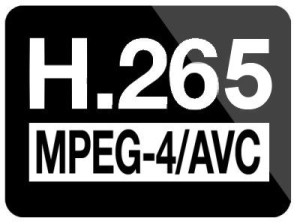Does your mobile phone provide better quality than a typical webcam? I'll test some virtual webcam software for mobile.
Codecs and what you should know
 Nearly since Alexander Graham Bell uttered the words, “Watson – come quick, I need you” there has been wide scale arguments, fights and lawsuits surrounding codecs used for the transmission of audio and video. It’s a well worn trail. Most folks don’t realize that lowly G.711 now used as the universal “last resort’ audio codec was in fact patented and subject to license up until 1992. While we don’t hear a lot about MP3 (the typical music audio codec) patent/licensing battles continued well into late 2009. Even lawyers aren’t entirely sure when the MP3 patent expires but most would tell you they’ve either expired or are about to. Great comfort.
Nearly since Alexander Graham Bell uttered the words, “Watson – come quick, I need you” there has been wide scale arguments, fights and lawsuits surrounding codecs used for the transmission of audio and video. It’s a well worn trail. Most folks don’t realize that lowly G.711 now used as the universal “last resort’ audio codec was in fact patented and subject to license up until 1992. While we don’t hear a lot about MP3 (the typical music audio codec) patent/licensing battles continued well into late 2009. Even lawyers aren’t entirely sure when the MP3 patent expires but most would tell you they’ve either expired or are about to. Great comfort.
Codecs always start the same way and the tendency to repeat the process seems nearly unavoidable. Here’s how it goes. A group of really smart technical folks, always from a bunch of different large and small companies, decide that however we’re encoding something today could be done better/faster/cheaper. With this wisdom, they decide to create something new and off they go.
Eventually someone at headquarters asked why they’re spending so much time and traveling to exotic locations to work on this new technology. Enter the intellectual property lawyer (otherwise known as the bad guy). They encourage the technical person to write up what they’ve contributed (since they were getting paid by the company to do all of this) and the IP lawyer disappears for the next 5 years to get a patent issued. This is repeated by each of the technical folk’s companies.
Five years later, all the IP lawyers, stand up with their new patent and exclaim how the company could be racking in millions by licensing this technology to the criminals who are stealing it.
The big companies pick teams on who they like (mostly nobody) but more importantly who they really dislike. They then threaten to sue each other for the next millennia with the “you’re probably infringing on a lot more of my other patents”. The lawyers then travel to exotic locations to hammer out cross licensing arrangements. The net result is $0 for anybody (except the lawyers – which seems to be the only common element in these types of stories).
Big companies don’t like to mess with little companies, so the little companies can infringe on the patent as long as they don’t get big. Big companies like to antagonize other big companies.
In the midst though comes the patent troll, who has figured out that they own a patent for a garage door opener and this somehow infringes on the an audio/video codec. These sly figures stay away from the big companies, but prowl about for the little companies and they boldly show up shouting infringement and asking for some modest amount of money to go away. I want a business like this.
Today, Microsoft, Google, Mozilla, Cisco, Intel, Netflix, and Amazon today launched a new consortium, the Alliance for Open Media. The almighty objective to build a video codec from scratch that would be royalty free. What’s important to think about is what companies are not in this consortium.
Meet HEVC Advance, who is a patent pool of 500 patents by a number of companies and they indicate their ownership of the H.265 video codec. The website is quite fancy but what is not clear is who is participating in this consortium. What is clear is their licensing terms. Expensive.
What’s the ‘net of all this?
Starting a video codec from scratch is not for the timid. Clearly the Alliance for Open Media has the horsepower to do this. But even if you took me (who doesn’t know anything about video codecs) and put me in a locked room (advocated by those who know me) and told me not to come out until I’ve build a video codec, I would likely emerge with my new codec already in violation of at least 25 patents.
The reason is simple. Due to the broad methodology patents held by most codecs (and some garage door openers), it’s near about impossible to write anything without violating some existing rights holder.
What does this mean?
The Alliance for Open Media didn’t have a clear answer on this strategy, but their strategy is clearly a weighing exercise against the HEVC Advance. The titans will battle, lawyers will travel to exotic locations and ultimately no real money will change hands.
Unfortunately, this saber rattling will take some time which means WebRTC video will continue to have challenges in interop between browsers which means you’ll have to continually be tweaking your application to work and in some cases if may not work at all.